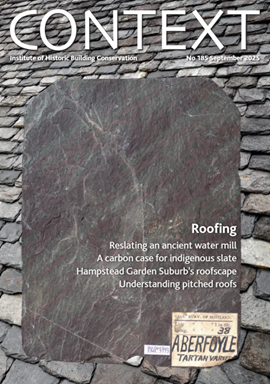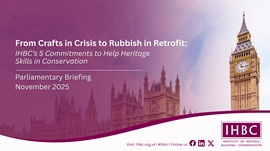Pier Paolo Pasolini

|
| ‘Untitled 1986’, otherwise known as the Headington Shark. |
‘Oh generazione sfortunata!’ proclaims the first line of Pier Paolo Pasolini’s 1970 poem ‘The Poetry of the Tradition’ – ‘Oh unlucky generation!’
Pasolini’s centenary in March was celebrated with much junketing in Italy and not much elsewhere, where he is mainly known for his films, now fading to dust in the world’s archives. His remarkable legacy of poetry has gained an Anglophone audience only recently, with Stephen Sartarelli’s scholarly 2015 selection, brought about with the aid of Pasolini’s fellow film-maker James Ivory.
One of the pillars of Pasolini’s work is tradition. Not the tradition of cheese-rolling, mayhem Shrovetide football or Up Helly Aa, but tradition deeply embedded in language and landscape. Much of his early poetry is in his native Friulian. He recognized the fundamental relationship between language and cultural identity that is now a widespread European movement, to the dismay of many nation-states.
Pasolini saw his poetry in the tradition of the Poesia Civile – Civil Poetry – of Dante and Boccaccio; shown by his frequent use of terza rima, and a triangular relationship between a personal viewpoint and two opposing imperatives. In Dante’s case these were the religious and moral, but to Pasolini they were deprecated politico-economic interests versus laudable ones of tradition or the needs of society.
My generation has been browbeaten with the notion that ours has been the most privileged in history. Despite a 50-year career in sustainability and conservation, it is disconcerting to read a poem written when it had hardly started describing us as unlucky for not ‘getting’ tradition. Pasolini correctly foresaw that all our mould-breaking new freedoms of the 1960s would merely lead to a lifetime of slavish consumerism.
In his lifetime Pasolini’s work met with critical acclaim, commercial success, and constant lawsuits brought by censors and self-appointed moralists. His hatred of clerico-political authoritarianism was as visceral as his loathing of the politico-economic hegemony which dogs us to this day. This standpoint was paralleled in Norman Jewison’s 1975 film ‘Rollerball’, set in an unregulated future in which nation states have been supplanted by multinational corporations who edit the world’s knowledge for their own ends. Sounds familiar?
The interface between regulation and tradition is an uneasy one, as conservation work often reveals. Confusion between paternalistic regulation, reviled by Pasolini, and ‘necessary’ regulation means that deregulators are apt to throw the baby out with the bathwater with reduced standards and underenforcement. This is brought home in the sharpest relief in Richard Norton-Taylor’s starkly moving play ‘Value Engineering: scenes from the Grenfell Inquiry’, which consists entirely of verbatim transcriptions of evidence given by participants in the inquiry. Its assembly into a succinct drama is far more telling than daily reports of minute detail over many months. At the end, appropriately without curtain calls or applause, one is left with the feeling that, notwithstanding the catastrophic sequence of individual failings, the real villain was the compartmentalisation of the procurement process that left no one with any connection to the project as a whole. It was a disastrous failure of regulation with no trace of the traditional processes, founded in those of craft guilds and the professions, in which the delivery of quality is holistic and carried out with pride.
‘Untitled 1986’, otherwise known as the Headington Shark, was a work of genius designed to make a Pasolinian political point in such a way as to be certain of producing public censure. Oxford City Council duly obliged with enforcement action which dragged on for years before a planning inspector, Peter Macdonald, to his credit, issued a ‘who cares?’ decision notice in its favour, rather in the face of the evidence. And now, in accordance with the rules of social normalisation, ‘Untitled 1986’ has been included in the Oxford Heritage Asset Register, to the outrage of the owner, and with its original and still pertinent message lost in the Banksyan bravura. Pasolini would have loved it.
In Pasolini’s words: ‘Oh unfortunate children, you had within reach a wondrous victory that didn’t exist!’. But maybe it does. The world is changing. Perhaps another generation will be more fortunate.
This article originally appeared in the Institute of Historic Building Conservation’s (IHBC’s) Context 172, published in June 2022.
--Institute of Historic Building Conservation
Related articles on Designing Buildings
IHBC NewsBlog
Latest IHBC Issue of Context features Roofing
Articles range from slate to pitched roofs, and carbon impact to solar generation to roofscapes.
Three reasons not to demolish Edinburgh’s Argyle House
Should 'Edinburgh's ugliest building' be saved?
IHBC’s 2025 Parliamentary Briefing...from Crafts in Crisis to Rubbish Retrofit
IHBC launches research-led ‘5 Commitments to Help Heritage Skills in Conservation’
How RDSAP 10.2 impacts EPC assessments in traditional buildings
Energy performance certificates (EPCs) tell us how energy efficient our buildings are, but the way these certificates are generated has changed.
700-year-old church tower suspended 45ft
The London church is part of a 'never seen before feat of engineering'.
The historic Old War Office (OWO) has undergone a remarkable transformation
The Grade II* listed neo-Baroque landmark in central London is an example of adaptive reuse in architecture, where heritage meets modern sophistication.
West Midlands Heritage Careers Fair 2025
Join the West Midlands Historic Buildings Trust on 13 October 2025, from 10.00am.
Former carpark and shopping centre to be transformed into new homes
Transformation to be a UK first.
Canada is losing its churches…
Can communities afford to let that happen?
131 derelict buildings recorded in Dublin city
It has increased 80% in the past four years.















